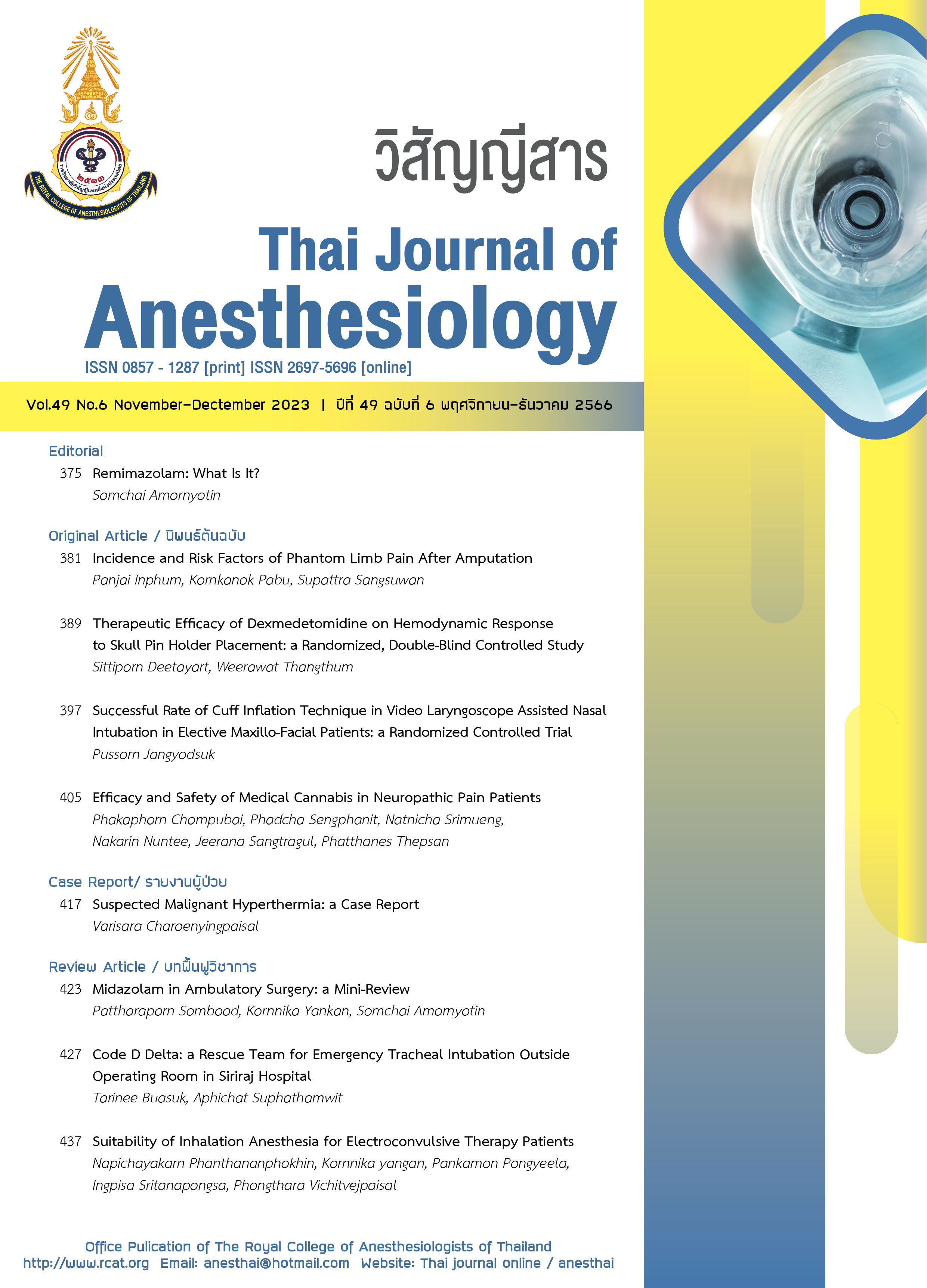Midazolam in Ambulatory Surgery: a Mini-Review
Main Article Content
บทคัดย่อ
Midazolam is a very useful drug in outpatient surgery. Its principal advantages are short duration of action, painless injection, no incidence of postoperative phlebitis, and a high degree of safety and effectiveness. Midazolam also has good anesthetic properties. It is safe and effective in both children and adults for the management of ambulatory surgery.
Article Details

อนุญาตภายใต้เงื่อนไข Creative Commons Attribution-NonCommercial-NoDerivatives 4.0 International License.
เอกสารอ้างอิง
Lee JH. Anesthesia for ambulatory surgery. Korean J Anesthesiol. 2017;70:398-406.
Amornyotin S, Promthong P, Reunreung W. Anesthesia for nuclear medicine procedures in children from 2002-2004 in Siriraj Hospital: a retrospective study. Thai J Anesthesiol. 2006;32:182-90.
Amornyotin S, Pranootnarabhal T, Chalayonnavin W, Kongphlay S. Anesthesia for gastrointestinal endoscopy from 2005-2006 in Siriraj Hospital: a prospective study. Thai J Anesthesiol. 2007;33:93-101.
Amornyotin S. Pediatric sedation and analgesia in a developing country. J Anesth Clin Res. 2011;2:S12:001.
Amornyotin S. Sedation and monitoring for gastrointestinal endoscopy. World J Gastrointest Endosc. 2013;5:47-55.
Amornyotin S. Sedative and analgesic drugs for gastrointestinal endoscopic procedure. J Gastroenterol Hepatol Res. 2014;3:1133-44.
Barends CRM, Absalom AR, Struys MMRF. Drug selection for ambulatory procedural sedation. Curr Opin Anaesthesiol. 2018;31:673-8.
Amornyotin S. Monitoring for depth of anesthesia: a review. J Biomed Graph Comput. 2012;2:119-27.
Amornyotin S. Sedation and monitoring for gastrointestinal endoscopy. World J Gastrointest Endosc. 2013;5:47-55.
Amornyotin S, Chalayonnavin V, Kongphlay S. Recovery pattern and home-readiness after gastrointestinal endoscopy. J Med Assoc Thai. 2007;90:2352-8.


